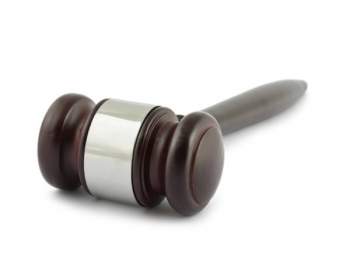
Understand The Democratic Platform

The democratic stance in concerns with gun laws has long been a rigid one. Many liberals have stated that homicide and crime will severely mitigate if more stringent gun laws are enforced. The democratic stance on gun control can be correlated with state interpretations of gun control. Historically speaking, most liberal states have a higher Brady scorecard than conservative ones. The Brady scorecard is a comprehensive scoring system used to evaluate the strength of state's gun laws. The scores are from 1-100 (1 being the weakest gun laws and 100 being the most strict), and they are listed below with a political affiliation attached to them. For this chart we will only use states that have consecutively voted "red" or "blue" for the past 4 presidential elections.
Conservative states and their Brady Scores
Alabama-16
Alaska-2
Georgia-6
Idaho-2
Kansas-7
Kentucky-2
Louisiana-2
Mississippi-6
Montana-4
North Dakota-4
Oklahoma-2
South Carolina-2
South Dakota-4
Tennessee-8
Texas-9
Liberal States and their Brady Scores
California-79
Connecticut-53
Delaware-22
Hawaii-42
Illinois-28
Maryland-52
Massachusetts-55
Michigan-24
New Jersey-73
New York-50
Pennsylvania-25
Rhode Island-45
mean Brady score for red
states=5.06
mean Brady score for blue states=45.66
The contrast between the sides is startling. To further elaborate on the
democratic stance on gun control one can look at all of the provisions passed
through liberal majority votes.
Gun Control Act of 1968
Passed in response to the assassinations of John
F. Kennedy and Martin Luther King. This bill altered federal law to help
broadly regulate the firearm industry. It made guns by mail illegal, (Lee
Harvey Oswald the suspected killer of JFK got his weapon through the mail) and
strictly enforced the transfer of firearms across state lines.
Brady Bill of 1993
Instituted mandatory federal background checks on all
firearm purchases in the United States. Also, prohibited the transfer or
sale of weapons to individuals who are mentally unstable, addicted to drugs, a
fugitive, has been discharged from the US army, illegal aliens, court ordered,
convicted of domestic violence, or any person who has been convicted of a
criminal crime. The Brady Bill has blocked the sale of over 2 million
firearms since 1994.
Federal Assault Weapons Ban
Part of the Violent Crime Control and Law
Enforcement Act of 1994 this provision instituted by Democrats prohibits the
sale of assault rifles and certain semi-automatic machine guns to citizens of
the United States.
National Firearms Act of 1934
Passed by Franklin D. Roosevelt in response
to growing concern over the infiltration of fully-automatic weapons on society.
During the prohibition era, powerful automatic weapons often wound up in the
hands of the mafia and criminals. These weapons not only created havoc, but
instilled fear on communities. Fearful of societal unrest, FDR passed the
National Firearms Act in 1934, which effectively placed ban on all automatic
weapons. The act made the obtainment of weapons nearly impossible and
instituted a federal stronghold on the production and purchase of such weapons.
Democrats commonly correlate gun use and the acquisitions of firearms with
homicide and other violent crimes. The liberal interpretation of the 2nd
amendment is not a direct right for individuals to own and use guns. In
general democrats do not have a no-tolerance stance towards guns, but instead a
"common sense interpretation." This simply means that long guns or
guns used for sport are permissible for societal use, while "violent"
guns such as handguns or semi-automatic weapons should be strictly regulated.
Sentiments towards gun control are strongly based on culture and background.
This can be connected to political parties as well. Most people in the
North East, in big cities, or on the west coast affiliate themselves with the
Democratic Party. Conversely, many republicans are found in the deep
south, rural areas, and bible belt. Guns are obviously used more
frequently for hunting purposes, recreation, and protecting one's land in these
areas. Democrats will tend to lean towards stricter gun laws because of
their state's greater population density's, urban environments, and ideology of
the region.
NEXT: Understanding The Controversial Assumptions





















